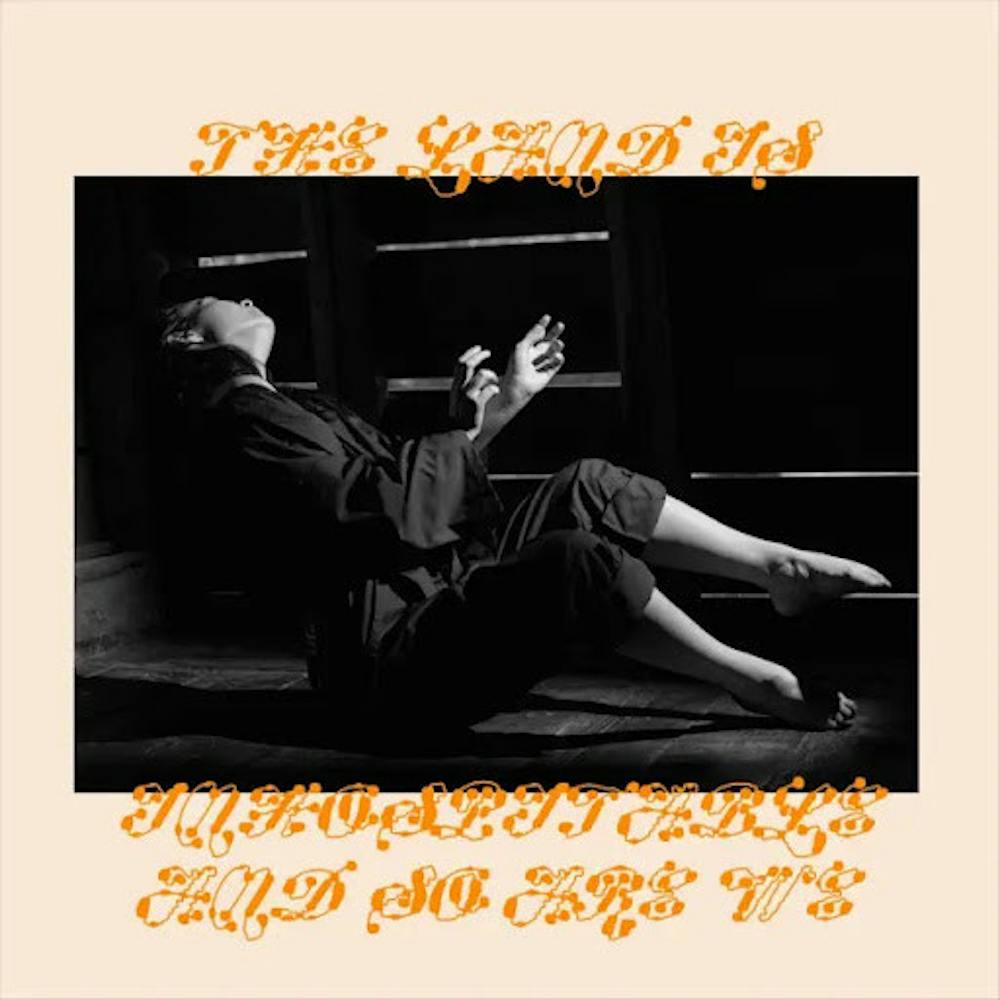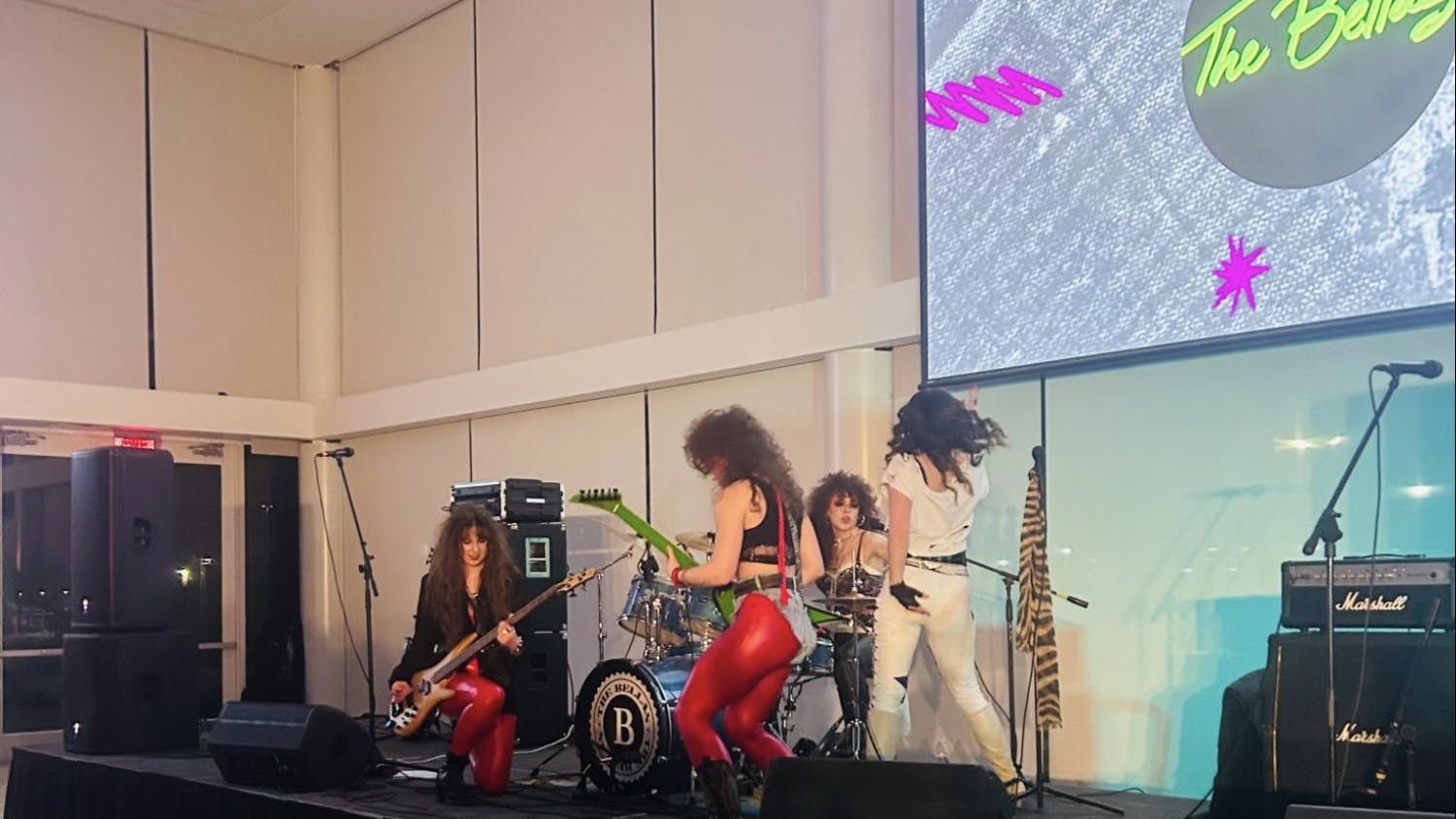By Lake DiStefano
Staff Writer
Indie star Mitski has recently released her seventh studio album, and it is a dense but moving listen in all aspects. The provocative title, “The Land is Inhospitable and So Are We,” elicits an instant parallel between the emotional DNA of the record and real-world physical devastation of the environment. In the stand-out tracks covered below, Mitski does this by utilizing natural imagery in relation to a decaying and lost relationship.
The earth is in as much agony as we are in our personal lives. At least, that’s the argument put forth by Mitski on this record.
The album opens with its lead single, “Bug Like an Angel.” Isolated guitar chords and echoey vocals begin the record, as Mitski sings a scene about drinking being interrupted by a bug stuck to the bottom of a glass.
The most notable line is “sometimes a drink feels like family.” On the note for “family,” other vocals emerge into the mix to create a choir-like atmosphere. The lone guitar chords and the choir vocals go back and forth during the track. The song itself is akin to a moving meditation, and sets both the tone and sound for the following tracks perfectly.
Another one of the pre-releases, “Heaven,” comes in third on the tracklist. Airy guitars and strings decorate this track with all the golden graciousness its title invokes. The lyrics to this song are essentially poetry, as Mitski reminisces on all the traces left by a vanished lover.
The most striking lyric being: “Now I bend like a willow/Thinkin’ of you/Like a murmurin' brook/Curvin' about you/As I sip on the rest of the coffee you left/A kiss left of you.”
The song alludes at multiple points to the relationship she mourns having its issues, which only makes its comparison to heaven all the more compelling. The song climaxes with piano chords and strings dueting.
Sixth on the album is “When Memories Snow.” Piano chords begin this one, as she uses a snow metaphor to compare memories, as hinted by the title. She very clearly does not like these memories and views them as a little more than nuisances: “When memories snow/And cover up the driveway/I shovel all those memories/Clear the path to drive to the store.”
Operatic vocals flicker in the background, as she continues her snow metaphor to describe all the ways in which these memories annoy her as snow would. For the first time in the record, horns come into the mix to accompany the drums and strings. A welcome change, which helps differentiate it among the tracklist. The beautiful metaphor and the change in sound makes this track a standout.
“My Love Mine All Mine” is a hazy highlight. The luster of the track lends to the lyrical themes, which continues the concept of tying emotions into nature. In this case, Mitski asks that the moon could continue to put her love out into the world, even after she’s gone. She asks this so that her lover will still be able to feel her. “Nothing in the world belongs to me/But my love, mine, all mine, all mine,” she chants with silky hushed vocals.
“The Frost,” is embellished with strings as Mitski calls upon another natural occurance to explain her internal strife. In this track, Mitski compares the sensation of growing frost to dust on once used items. She explains how she lost her best friend, and that the frost has grown over their lost bond.
The last of the pre-releases, “Star” uses strings and distortion to mimic the empty magnificence of outer space. Drums slowly enter the mix as Mitski directly compares a love she once had with someone to a star. A shining thing which is now as beautiful as it is distant. This has been the track I find myself coming back to the most.
“I’m Your Man” with its echoing drums and soft acoustic guitar is another highlight. Mitski toys with three main figures here: a man, a dog and God. As dog barks and choir vocals enter the mix, she uses the dynamic between a man and his dog to explain a past relationship of hers. A dog views its owner as a God, when he is only ever a man. A man with the full ability to betray.
The final track, “I Love Me After You,” serves to close the record both sonically and thematically. The echoey drums, vocals and guitar strums make their return. As the song climaxes with some heavy distortion, Mitski sings about the many acts of self-care she has taken.
In a powerful statement given the negative connotation of all things nature related on the album, the last line of the record is “I’m king of all the land.” Given the album’s title, it is as if she is calling herself the ruler of the inhospitable. That due to all the failed loves referenced on the album, she has found power and peace in how destruction finds her wherever she goes. Like nature, her strength both gives and takes.
Mitski adds another jewel to her discography with this record, and it is now my second favorite among her works. My three favorite tracks are: “Star,” “I Love Me After You” and “My Love Mine All Mine.”







